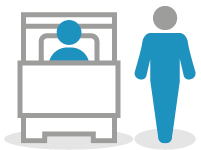Wednesday, 26th February, 2020
NHS Greater Glasgow and Clyde has served a summons on Multiplex, Capita Property and Infrastructure Ltd and Currie and Brown UK Limited for losses and damages incurred due to a number of technical issues within the Queen Elizabeth University Hospital and the Royal Hospital for Children.
Given the public interest in the hospitals and legal proceedings, the summons is being published today (26 February 2020).
The summons sets out where the requirements of NHSGGC were not met in either design, commissioning or building stages in eleven specific areas.
The legal action is being taken following a review commissioned by NHSGGC to consider how these technical issues arose and any further actions required.
Specific issues have also been the subject of a further external review. An independent review by Health Protection Scotland (HPS) into the water supply confirmed contamination of the water system in 2018.
The independent review by HPS, which was commissioned by NHSGGC, was established to investigate a number of probable linked cases of infection associated with the water supply.
HPS agreed with the measures proposed by NHSGGC to address the water system issues – and these actions have been taken.
The report and the remedial work carried out by NHSGGC have been shared with families, the public and other stakeholders.
Jane Grant, Chief Executive, said: “We would assure patients and their families that patient safety is paramount and that patient care at the two hospitals is of a high standard.
“Our staff strive at all times to provide high quality care and I would like to thank them for their continued professionalism and dedication during this time.
“Whilst we are now taking legal action on a number of design and installation issues, it is important to stress that the hospitals continue to provide safe and effective care.
“A significant amount of work has already taken place including the remedial action on the water supply and the ventilation.
“We know that patients, families and staff have been caused concern as the issues have emerged and I am sorry for any distress caused.
“As the matters are now the subject of court proceedings, we are not in a position to comment further.”
ENDS
Summons
Precis
Background
The current estimation of damages and losses is approximately £73m, which include the costs incurred to date and an estimate of future anticipated costs.
It should be noted that because this sum is an estimate it may be subject to change.
In total, the summons covers eleven technical issues. Action taken to address the issues is as follows:
Issue 1: Water System – Action Taken
When issues with the water system were identified in Wards 2A and 2B at the RHC in March 2018, steps were taken to investigate and put in place improvements and control measures including fitting point of use filters on water outlets.
When bacteria were subsequently identified in the drains of these wards in June 2018, drain cleaning was initiated in high risk areas.
In mid-September, we made the decision to transfer the patients to Ward 6A of the neighbouring QEUH. This allowed our technical staff to carry out more detailed examinations of the overall environment of the two wards.
We subsequently installed a continuous Chlorine Dioxide dosing plant in RHC (December 2018) and QEUH (March 2019) and installed further point of use filters in all clinical areas where the haemato-oncology patients are likely to attend. These solutions were endorsed by Health Protection Scotland and Health Facilities Scotland.
We continue to monitor water hygiene closely. The water is ‘potable’ meaning it conforms to drinking water standards.
Issue 2, 3 and 4: Ventilation – Action Taken
Work was carried out on the adult BMT unit in 2017 to improve the air quality and provide HEPA filtration to all patient bedrooms and ancillary areas. We continue to monitor the air quality in this unit.
Seven negative pressure rooms have been upgraded and this was complete by May 2019.
The ventilation system in Ward 2A and 2B of the RHC is currently being upgraded to provide optimal, state of the art facilities for all our young haemato-oncology patients. This work will conclude in summer 2020.
Issue 5: Plant and building service capacity
Further design investigation required.
Issue 6: Toughened glazing – Action Taken
A protective canopy is being installed, and is currently under construction, to mitigate the risk of the impact of fractured glass.
Issue 7: Doors – Action Taken
The door frames are not as required in the contract and replacement and repairs are having to be carried out more often than expected. However, it must be stressed that fire safety has not been compromised as this does not affect the integrity or functionality of the doors.
Issue 8: Heating system
The energy plant continues not to achieve the required efficiency.
Issue 9: Atrium roof – Action Taken
The section of the roof that was damaged has since been replaced.
Issue 10: Internal fabric moisture ingress – Action Taken
Previous media reports have covered the issues relating to the design and materials used in the construction of the en-suite bathrooms. A programme of repair or replacement is underway.
Issue 11: Pneumatic transport system – Action Taken
The hospitals continue to operate with alternative transportation and portering arrangements as a backup.















